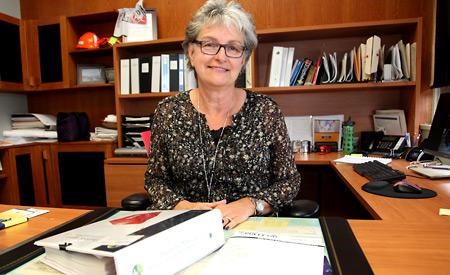YOUR VOTE COUNTS: By any count, having responsibility for an election is demanding, it can be stressful, but is ultimately rewarding.
British Columbia’s municipal elections officers will be facing fewer elections in the future, however, reducing this dynamic and important part of their jobs as city clerks.
The last BC civic elections were held in November 2011 and terms of office were three years. As of the November 15 election this year, election cycles will be four years. The new legislation brings into play changes for both the elections officers and for candidates such as those seeking office for Powell River Regional District board of directors, Powell River Board of Education school trustees, as well as City of Powell River mayor and council.
Marie Claxton, clerk for the city, has the assignment of serving as the chief elections officer for the city. Some of the tasks that have previously been expected of her will devolve to Elections BC. For candidates seeking a seat in local government, it will mean a longer commitment.
Claxton said the change in election cycles seems to have been initiated through the Union of BC Municipalities (UBCM). There was a task force established in 2010 involving the province and UBCM to examine the local elections cycle.
Advocates for the four-year term of office stated that a longer cycle provides cost savings by reducing the number of elections. Four-year terms allow for a longer planning cycle for local governments and give more time for new councillors to learn and conduct the duties of their office. The terms also offer consistency with federal and provincial counterparts, which also have four-year terms.
Opponents of extending the term of office indicate that longer terms are a barrier to participation and that longer terms may actually lead to more by-elections, thus eliminating any cost savings achieved by holding fewer general elections. Opponents indicate there would be fewer opportunities to hold referendums in conjunction with general elections, and that a longer time between elections gives electors less opportunity to express their opinions on the performance of their local elected officials.
The Local Elections Campaign Financing Act came into effect on May 29, 2014. Claxton said the legislation is designed to increase accountability, transparency, compliance and enforcement of the rules.
“I guess the big thing from a chief election officer point of view is that Elections BC is now responsible for the campaign financing and election advertising rules,” Claxton said. “They administer it, they investigate any complaints and they enforce it.
“Before, if people had questions about their campaign advertising, they would come to me and I’d quote the act.”
Keeping tabs on advertising during a campaign goes over and above what the candidates issue. Claxton said in the past she’s had to also scrutinize third-party advertising.
“What Elections BC has done is produce a guide and with all of our nomination packages, our candidates are receiving the guide.
“Interestingly, when council voted to go for elector assent on a borrowing bylaw for the library last week, the rules for advertising also apply to folks or organizations that are advertising for or against a question. As we get rolling on this, I’m going to have to ensure that people placing signage for or against are aware.”
Claxton is hoping to post this type of information on the city’s website. “I think I’m going to create a website page just for the new library issue,” she said.
Nominations for election to council close on October 10, and on October 15, there will be an informal candidate orientation. It will provide a brief primer on council’s role. Samples of current policy, such as the budget and the strategic plan, will be provided.
“It will be the chief administrative officer and me and it will be an opportunity for people to ask us what’s on their minds,” Claxton said.



